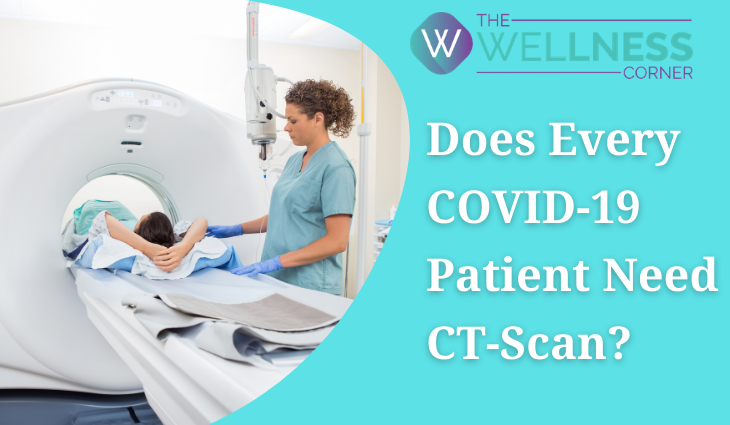A CT scan, also known as a CAT scan, is a computerised tomography scan. It is being prescribed at a rapid rate during the second wave of coronavirus. An enormous peak in the COVID-19 cases has indeed resulted in panic and worrisome situations. On top of that, misuse of CT scan for COVID, CRP test, D-Dimer tests, and several medications is coming into the picture.
Is a CT scan harmful? Doctors of renowned medical institutions and hospitals have warned the public about the carcinogenic effects of powerful radiation on the body. Moreover, the concern is justified as mild COVID-19 cases are manageable in home isolation and do not need to be exposed to the risk of CT scan cancer. Let us know more about this in detail.
You May Also Like - How to Recover from COVID-19 at Home During Second Wave?
The Use Of CT Scan In COVID-19
You must have heard of X-rays and how you should not keep getting exposed to radiation unless required. CT scan is simply a detailed version of an X-ray. It is capable of better understanding blood vessels and soft tissues. The coronavirus CT scan is a chest scan to check the conditions of your lungs and other parts of the respiratory tract.
Mild cases of COVID-19 mean those where oxygen saturation levels are at or above 95%. In such cases, the public does not need to go for unnecessary scans and biomarker tests. In severe cases of COVID-19 infection, doctors and scientists have come to a finding that neglected coronavirus might lead to progressive pneumonia. It is only applicable to critical incidents of -19, where the oxygen saturation is below 90-92%. Here a person is likely to be advised to go for a chest CT scan.
You May Also Like - 4 Ways to Increase Oxygen Level in COVID-19 Patients at Home
Harmful Effects of CT Scan During COVID-19
Scans involve radiations, which are the possible cause of cancer. Not everyone who gets the test done gets cancer, but each one is at the risk of getting it. CT scan is an essential diagnostic tool to identify infections, bone fractures, studying internal structures, blood vessels, etc. Some cases cannot ignore a CT scan prescription as they are the critical cases of coronavirus infection.
Mild cases of COVID-19, especially the youths, are prone to developing cancer in their later stages of life with frequent CTs. Studies estimate that one CT scan is equivalent to 200-300 X-rays. The risk increases if it is a chest or abdomen scan, and coronavirus CT scan requires chest scanning to picture the lungs.
Another lesser-known risk associated with scanning is an allergic reaction to it. A contrast material usually contains iodine, and some people are allergic to it. If you fall under this category, notify your doctor.
For those who are pregnant, a chest CT scan for COVID-19 is unlikely to cause harm to the baby. However, your doctor will most likely recommend an MRI or ultrasound.
Takeaway
The practice of getting a chest CT scan for COVID-19 is not suggested for mild cases. Yes, one might find some patches in the lungs due to infection, but they are treatable with the routine protocol. Despite maximum precautions, a person getting frequent CTs and, especially when not required, puts him/her at a high risk of cancer. To conclude, doctors do not recommend CT scan for mild to moderate infection, showing no decline in percentage saturation of oxygen below 94%.
